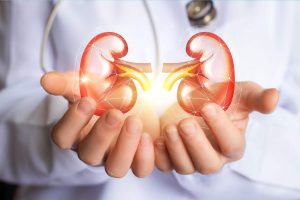What is a Suggested Diet for Chronic Kidney Disease?

Chronic Kidney Disease (CKD) is a serious health condition that progressively diminishes kidney function over time. It affects millions of individuals worldwide, often without noticeable symptoms in the early stages. While medications and medical treatments can manage CKD, diet plays a pivotal role in slowing the disease’s progression and improving quality of life. Understanding and following a well-structured diet for chronic kidney disease is crucial for patients aiming to protect their kidney health. The best dietary strategies for CKD, including foods to eat, those to avoid, how to manage essential nutrients, and practical meal planning tips.
Understanding Chronic Kidney Disease and Its Dietary Impact
CKD occurs when the kidneys can no longer filter waste and excess fluids from the blood efficiently. This impaired function can lead to an accumulation of harmful substances in the body, causing a range of complications including high blood pressure, anemia, weak bones, and nerve damage.

One of the most effective ways to manage CKD is through dietary intervention. A proper diet for chronic kidney disease helps:
- Control blood pressure and blood sugar
- Reduce the workload on the kidneys
- Maintain fluid and electrolyte balance
- Prevent waste buildup in the blood
- Delay the need for dialysis
However, there’s no one-size-fits-all approach. Dietary recommendations often vary based on the stage of CKD, lab results, and other medical conditions like diabetes or hypertension.
Related Article: Can People with Chronic Kidney Disease Eat Apples?
Key Principles of a Diet for Chronic Kidney Disease
1. Control Protein Intake
Protein is essential for building and repairing tissues, but excess protein generates more waste for the kidneys to eliminate. For people with CKD—especially in early to moderate stages—moderating protein intake can help preserve kidney function.
- Recommended intake: Typically 0.6 to 0.8 grams of protein per kilogram of body weight per day (as advised by a nephrologist or renal dietitian).
- Best sources: Lean meats, eggs, fish, poultry, tofu, and legumes in moderation.
For patients already on dialysis, protein needs may increase due to protein loss during the treatment.
2. Limit Sodium (Salt)
High sodium intake can increase blood pressure and cause fluid retention, further straining damaged kidneys.
- Recommended intake: No more than 2,000 mg (2 grams) per day.
- Tips:
3. Manage Potassium Levels
Potassium helps regulate heartbeat and muscle function. However, in CKD, potassium levels can become dangerously high (hyperkalemia), leading to heart problems.
- When potassium is high:
- Limit bananas, oranges, potatoes, tomatoes, spinach, and avocados.
- Prefer apples, grapes, berries, cabbage, and cucumbers.
- Leaching method: Boil potassium-rich vegetables and discard the water to reduce potassium content.
Your doctor may recommend a potassium binder if diet alone is insufficient.
4. Control Phosphorus Intake
Elevated phosphorus levels can lead to bone and cardiovascular issues in CKD patients. As kidney function declines, phosphorus accumulates in the blood.
- Foods to limit:
- Dairy products (milk, cheese, yogurt)
- Nuts and seeds
- Cola drinks and packaged baked goods with phosphate additives
- Opt for:
- Non-dairy milk alternatives like almond or rice milk (phosphate-free)
- Low-phosphorus vegetables and fruits
- Phosphate binders may be prescribed with meals to reduce absorption.
5. Regulate Fluid Intake
In advanced stages of CKD, the kidneys may struggle to remove excess fluids, leading to swelling, high blood pressure, or fluid in the lungs.
- Monitor weight daily as a way to track fluid retention.
- Limit intake of soups, ice cream, water-heavy fruits (e.g., watermelon), and beverages if recommended.
- Suck on ice chips or hard candy to manage thirst.
6. Pay Attention to Calories
Maintaining a healthy weight is essential, especially if you have diabetes or are undergoing dialysis. People with CKD may need to increase or decrease calorie intake based on body weight, physical activity, and overall health goals.
- For weight gain: Use healthy fats like olive oil, avocados, and unsalted nut butters.
- For weight loss: Reduce sugar and saturated fats while increasing fiber and low-calorie vegetables.
Related Article: What Are the Primary Causes of Chronic Kidney Disease (CKD) in Adults?
Suggested Food List for Chronic Kidney Disease
Below is a categorized list of foods generally recommended or restricted in a diet for chronic kidney disease:
✅ Kidney-Friendly Foods
- Fruits: Apples, grapes, blueberries, strawberries, peaches
- Vegetables: Cabbage, cauliflower, bell peppers, zucchini
- Grains: White rice, refined pasta, white bread (lower in phosphorus)
- Proteins: Egg whites, chicken breast, turkey, fish
- Dairy alternatives: Unsweetened almond or rice milk
- Fats: Olive oil, unsalted butter, flaxseed oil
❌ Foods to Avoid or Limit
- High-potassium: Bananas, oranges, potatoes, tomatoes, beans
- High-sodium: Canned soups, salted chips, frozen meals, pickles
- High-phosphorus: Cheese, nuts, cola drinks, whole grains
- Processed meats: Sausages, bacon, deli meats
- Dark-colored sodas: Due to phosphate additives
Sample Meal Plan for Chronic Kidney Disease
Here’s a one-day example of a CKD-friendly meal plan, incorporating low sodium, potassium, and phosphorus foods:
Related Article: Chronic Kidney Disease Symptoms, Causes, Diagnosis and Treatment
🥣 Breakfast
- 1 cup white rice cereal (cooked)
- 1 slice white toast with unsalted margarine
- ½ cup blueberries
- Herbal tea or black coffee (no added cream or sugar)
🥗 Lunch
- Grilled chicken breast with lemon and herbs (3 oz)
- Steamed cabbage and carrots
- ½ cup white rice
- Apple slices
🍽 Dinner
- Baked cod (3 oz) with garlic and parsley
- Zucchini sautéed in olive oil
- Small dinner roll (unsalted)
- ½ cup canned peaches (in juice, drained)
🍪 Snack
- Unsalted rice cakes with a small amount of almond butter
- Herbal tea
💧Note on Fluids: Keep total fluid intake within prescribed limits if advised by your healthcare provider.
Diet Modifications Based on CKD Stage
Early-Stage CKD (Stages 1-3)
- Focus on controlling blood pressure and blood sugar.
- Limit protein slightly.
- Reduce sodium to prevent hypertension.
- Monitor potassium and phosphorus if blood levels rise.
Mid to Late-Stage CKD (Stages 4-5)
- More stringent protein, potassium, phosphorus, and sodium restrictions.
- Close collaboration with a renal dietitian is recommended.
- Possible fluid restrictions to prevent overload.
Dialysis Patients
- Increased protein needs to replace lost nutrients.
- Tighter control of phosphorus, potassium, and fluid intake.
- Frequent dietary adjustments based on lab results.
Special Considerations
Diabetic Kidney Disease
If diabetes is the root cause of CKD, managing blood sugar becomes as crucial as controlling other nutrients.
- Limit sugary foods and refined carbohydrates.
- Choose low-glycemic fruits and high-fiber vegetables.
- Monitor blood glucose regularly.
Vegetarian/Vegan Diets
Plant-based diets may offer kidney-protective benefits but need careful planning to avoid excess potassium or phosphorus from plant foods.
- Choose lower-potassium vegetables.
- Limit legumes and whole grains if phosphorus is high.
- Use phosphate binders as needed.
Supplements and Herbal Considerations
People with CKD must be cautious with supplements and herbs, as many contain potassium, phosphorus, or other compounds harmful to weakened kidneys.
- Avoid over-the-counter supplements unless cleared by a doctor.
- Be cautious with herbs like parsley, nettle, or dandelion, which may act as diuretics or worsen kidney function.
- Iron, vitamin D, and B-complex are commonly prescribed but should only be taken under medical guidance.
Tips for Meal Planning and Adherence
- Work with a Renal Dietitian: They provide personalized plans and recipe ideas tailored to your needs.
- Keep a Food Diary: Track meals, symptoms, and lab results to identify patterns.
- Read Nutrition Labels: Watch for sodium, phosphorus additives, and potassium content.
- Plan Ahead: Cook kidney-friendly meals in batches and freeze portions.
- Stay Educated: Join CKD support groups or attend nutrition workshops to stay updated.
Conclusion: Why Diet Matters in Chronic Kidney Disease
In summary, a proper diet for chronic kidney disease is a powerful tool that can improve health outcomes, preserve kidney function, and enhance overall quality of life. While it may seem restrictive at first, with the right guidance and planning, you can enjoy flavorful meals that support your health goals.




